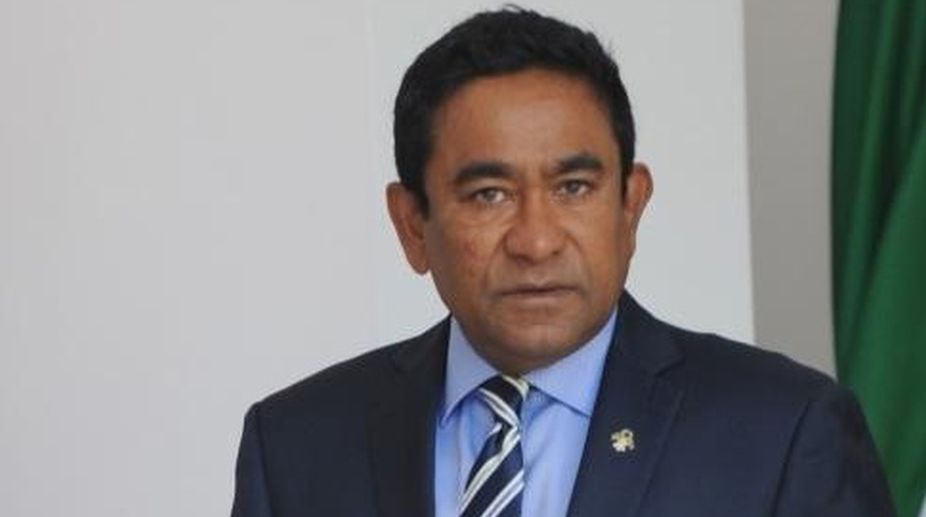China on Friday welcomed Maldivian President’s Abdulla Yameen’s decision to lift the state of Emergency and hoped the government and the opposition will solve the crisis jointly through dialogue.
On February 5, Yameen had imposed Emergency in the Maldives, arresting the Supreme Court judges, a former president and opposition party leaders after the apex court issued an order that could have ousted the President.
Advertisement
Yameen ended the 45-day Emergency on Thursday only after slapping terrorism charges against former President Maumoon Abdul Gayoom, Supreme Court’s Chief Justice and a judge.
“China welcomes the Maldives lifting the Emergency and restoring normal social order,” Foreign Ministry spokesperson Hua Chunying said here.
“We believe the Maldives’ government and the political parties have the wisdom and capability to properly resolve their differences through dialogue and consultation and restore political stability and social harmony of the Maldives,” Hua added.
The crisis erupted when the apex court gave a judgment, asking the Yameen government to free political prisoners, and reinstate 12 parliamentarians from the opposition party led by Mohamed Nasheed who lives in exile.
China had warned against any interference by India in the Maldivian crisis when New Delhi asked Yameen to abide by the court order.
Yameen is considered pro-Beijing. Last year, he signed a free-trade agreement with China, which breezed through the Maldivian Parliament with almost no debate or discussion.
In fact, Yameen sent his envoy to Beijing and Islamabad to apprise them of the political situation. His main political rival, Nasheed, is considered close to India.
China over the years has invested heavily in the atoll nation, strategically located in the Indian Ocean.











